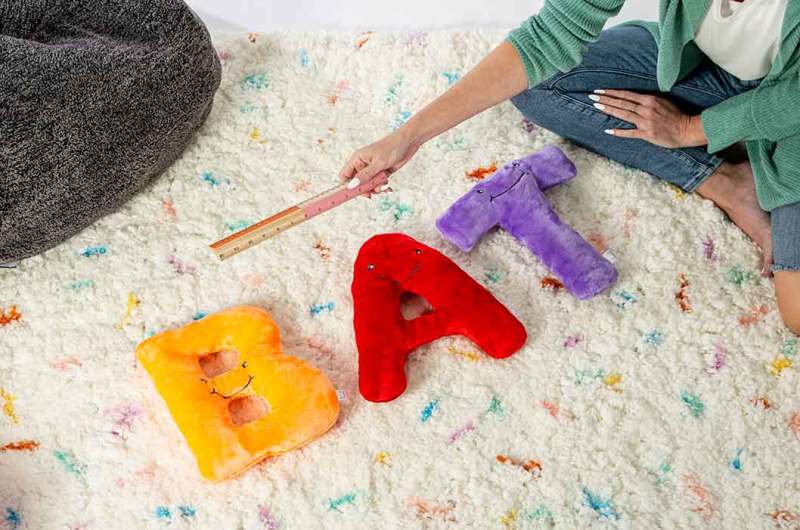
The Role of Speech Language Pathologists in Supporting Children with Autism
July 27, 2023
Autism spectrum disorder (ASD) is a developmental disorder that can appear in early childhood, affecting a child's ability to develop functional language, learn about the world around them, and form relationships with others.
According to researchers, signs of ASD typically surface between the ages of 1.5 and 3 years. If your child is autistic, early intervention is essential in helping them manage their sensory experiences and develop vital coping skills.
Speech therapists can work with kids and their parents to help manage autism symptoms and empower patients to gain essential social, communication, and behavioral skills. Read on to understand how ASD can cause speech impairment issues in early childhood and what a speech-language pathologist can do to help.
Understanding Autism Spectrum Disorder
In their toddler years, autistic children can experience social and communication development delays. Kids diagnosed with an autism spectrum disorder might have challenges talking, making eye contact, or understanding gestures and other forms of nonverbal communication.
In some cases, autistic kids can experience deficits in movement/coordination and often show narrowed interest in playing with toys or their peers. Other signs of autism include repetitive behavior, self-isolation, and self-injury. Some kids may even talk in an unusual tone or repeat everything they hear.
According to the Centers for Disease Control and Prevention (CDC), ASD is a prevalent developmental disorder that affects approximately 1 in 44 kids. Autism is considered a spectrum disorder with five categories, each demonstrating varying degrees of difficulties a child faces with communication and language development.
The five major types of autism are:
Asperger's syndrome
Rett syndrome
Childhood disintegrative disorder
Kanner's syndrome
Pervasive Developmental Disorder
What Does a Speech Language Pathologist (SLP) Do?
A speech-language pathologist (SLP) works with infants, children, and adults to help them develop or improve their speech and language skills. These specialists can be consulted when infants or young children show signs of deficient cognitive or social communication. SLPs play an important role in evaluating and diagnosing potential developmental disorders that cause verbal, social, and communication deficits in early childhood. They are trained to screen children for autism and catch developmental differences in speech, language, and behavior.
After diagnosis, SLPs will formulate an appropriate therapy plan that equips the child with pre-language skills, such as using gestures and eye contact. The specialist then formulates strategies that promote learning and speech/language development. To help autistic children overcome autism speech delay, parents should incorporate these strategies into day-to-day learning and play.
SLP's Role in Autism
Autism speech therapy isn't a one-size-fits-all intervention. As such, SLPs often leverage a wide range of specialty programs that serve as part of an early intervention strategy. These can include:
Assessing language and communication skills: The first step in speech therapy is an initial evaluation that allows the SLP to screen for autism and assesses the child's receptive and expressive language skills.
Developing individualized treatment plans: Once the speech therapist assesses the individual's current strengths, they can develop individualized goals and treatment plans to improve their communication abilities and address undesirable behaviors.
Implementing evidence-based interventions: SLPs then implement therapeutic programs that facilitate and enhance speech and language development. Evidence-based interventions include educational playtime, spontaneous communication, cognitive development, and sensory play.
Collaborating with other professionals and caregivers: Speech-language pathologists often encourage parents, caregivers, educators, and other healthcare professionals to join the therapy process. This collaborative approach fosters learning and encourages communication, improving outcomes associated with speech therapy for autism.
Speech and Language Challenges in Autism
Autistic kids face challenges comprehending verbal communication and identifying new letters or words, resulting in language development issues.
Children with autism also face challenges recognizing and interpreting nonverbal communication. This essential skill is needed to make it easier for them to exchange their ideas and form relationships with others.
Speech therapy assists autistic children in improving their use of single words and simple phrases to foster language development. Autism speech therapy also addresses social communication deficits by training patients to pick up subtle social cues in body language and facial expressions.
Autistic children can receive ongoing speech therapy with interactive sensory development toys to improve their grasp of spoken language and tackle nonverbal communication challenges. By introducing alphabet-learning toys like Alphapals, speech pathologists can work with autistic kids to expand their vocabulary and improve the articulation of sounds.
Speech Therapy for Autism
Speech therapy helps autistic kids overcome unique developmental challenges that hinder their ability to learn and communicate. The intervention uses eye contact, gestures, and other forms of body language to help autistic kids articulate their feelings without words.
Treatment for autism can also leverage augmentative and alternative communication to support verbal communication. Educational tools like puzzles and picture cards can inspire learning and prompt autistic children to initiate requests.
In most cases, caregivers can promote language acquisition and improve grammar by encouraging kids to ask and answer questions. Moreover, parents can help address communication deficits by modeling fun play routines around interactive toys like Alphapals. These plush alphabet learning toys can help enhance sensory skills, such as touch while promoting learning through play.
How Alphapals Can Help
Autistic children often face many communication problems that can impact their ability to use words or express feelings and emotions. Speech therapy can help children with autism spectrum disorder improve their abilities to communicate their needs and gain independent living skills.
Alphapals is a huggable and adorable sensory toy designed to help support your kid's autism speech therapy, opening a new world of communication possibilities. Speech therapists and caregivers can use this game-changing alphabet letters to help autistic children improve their vocabulary and sharpen their communication skills.
Alphapals also offer a wide range of fun, interactive activities that foster language, cognitive and sensory development. Shop Alphapals Sets here to unlock the power of play-based learning and help your child on their communication journey.









